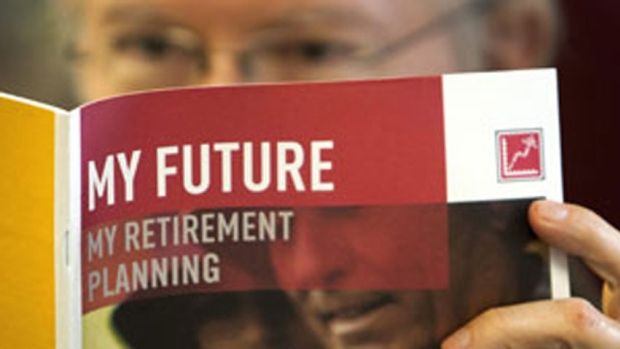California high court sets stage for major pension ruling
 SACRAMENTO – The battle over reforming California’s underfunded system of pension benefits does not involve any particular legislative proposal or initiative idea at this time but is centered on a coming state Supreme Court battle over an arcane legal concept.
SACRAMENTO – The battle over reforming California’s underfunded system of pension benefits does not involve any particular legislative proposal or initiative idea at this time but is centered on a coming state Supreme Court battle over an arcane legal concept.
Legislators have largely avoided the pension issue since passage of a reform law that went into effect in 2013, and reformers have struggled to settle on an initiative strategy to take to voters. That’s unlikely to change. But last week the high court agreed to review a union appeal of a decision involving an obscure concept known as the California Rule. The decision could change everything.
The California Rule is not actually a rule, but a legal doctrine that emanated from a 1955 court case. Essentially, it states that no vested public-employee benefit such as a pension can be reduced unless public employees are granted another benefit of equal or greater value. Unions claim that a 2013 state law unfairly deprives them of vested benefits.
The rule remains the stumbling block for most efforts to reduce pension costs, given that it severely limits public agencies’ efforts to slice current pension costs. Hence, pension reformers and unions alike are eager to get a final verdict on the matter.
In the private sector, companies that offer defined-benefit pension plans – those plans that guarantee a pension payout based on a formula, as opposed to 401(k)s – are free to reduce the benefits going forward. In other words, employees must be made whole through today, but may start receiving lower benefits tomorrow. By contrast, in California and other states that follow this rule, government workers must be paid the full amount of the promised benefits until they (and their spouses) pass away.
The accepted interpretation has been that a benefit hike, once approved by a government agency, is permanent. It can never be rolled back. As a result, most pension reform proposals deal only with shaving benefits for new hires, who won’t start retiring for 25 or 30 years. That leaves service cuts and tax hikes as the only way to deal with increasing pension debt.
Some localities have tried to take on the rule. In 2012, for instance, San Jose officials put a pension-reform measure on the ballot that required current city employees to choose between new pension plans that offered fewer benefits than current plans. It passed with 70 percent of the vote, but the courts later gutted that measure. They relied on the California Rule.
But now the California Supreme Court is ready to address the issue, at least around the margins. Last week, the court, without comment, agreed to a union challenge of a San Francisco appeals court that put limits on the application of the rule. Last summer, unions appealed a similar Marin County case, in which an appeals court also put some limits on the rule’s application.
At issue is the California Public Employees’ Pension Reform Act, which went into effect in January 2013. Most analysts viewed the law as a modest attempt to get control of the state’s growing unfunded pension liabilities, or debt. Most of it applied only to newly hired state workers. But it did include a handful of provisions that affect current workers.
On Dec. 30, the First District Court of Appeal in San Francisco rejected a challenge by a state firefighters’ union claiming that PEPRA’s elimination of a 2003 benefit that let firefighters purchase up to five years of additional credits (airtime) before retiring was in violation of the rule.
“The unions argued that their members had a legal right to the pension benefits that were in effect when they were hired and that the state broke its contractual promise to them by eliminating those benefits,” according to a San Francisco Chronicle analysis. The 3-0 written opinion found that public employees have a right to a “reasonable pension” but they aren’t guaranteed “fixed or definite benefits immune from modification or elimination.”
“(P)laintiffs assert a vested contractual right to purchase up to five years of airtime service credit that is not subject to elimination or destruction by legislative amendment or repeal ‘even before the benefit has been accessed or the time for retirement has arrived.’” The court said plaintiffs “disregard the fact that, when amending the statutory scheme governing pension rights, the Legislature in fact provided (eligible public employees) … a several-month window in which to purchase the airtime service credit before the option terminated.”
The high court could uphold the rule or overturn it, or put certain limits on its application and deal narrowly with the “airtime” issue. In that separate Marin County case, five unions challenged PEPRA’s limitation of various ways that public employees enhance, or spike, their end-of-career salaries (bonuses, unused leave, etc.) to boost their lifetime retirement pay.
Unions argue that the reform reduced their vested pension benefits and was therefore in violation of their constitutional rights, as upheld by – you guessed it – the California Rule. “(W)hile a public employee does have a ‘vested right’ to a pension, that right is only to a ‘reasonable’ pension – not an immutable entitlement to the most optimal formula of calculating that pension,” ruled Justice James Richman, in language similar to the San Francisco ruling. He wrote that the Legislature may “prior to the employee’s retirement, alter the formula, thereby reducing the anticipated pension.”
As reporter Ed Mendel has explained in Calpensions, “The high court will wait until an appeals court rules on three similar spiking ban suits consolidated from Alameda, Contra Costa and Merced counties.” That might take some time, but this issue is definitely coming to the state’s high court in one form or another, sooner or later.
Battle lines are drawn. The unions claim that state and local agencies may not reduce any pension benefits. Pension reformers – and the courts, in recent decisions – say that while a reasonable pension remains a right, that doesn’t stop localities from reducing some things. These cases deal with pension-spiking enhancements and the purchase of airtime – controversial and somewhat limited practices. But the future of pension reform is on the line.
Steven Greenhut is Western region director for the R Street Institute. Write to him at [email protected].
Steven Greenhut
Steven Greenhut is CalWatchdog’s contributing editor. Greenhut was deputy editor and columnist for The Orange County Register for 11 years. He is author of the new book, “Plunder! How Public Employee Unions are Raiding Treasuries, Controlling Our Lives and Bankrupting the Nation.”
Related Articles
Strike or no strike, L.A. Unified in desperate financial shape
Leaders of the Los Angeles Unified School District, by far California’s largest school district, are struggling to head off a
Not a single Leland Yee gun-control bill was signed into law
Was alleged gun-runner and gun-control advocate Leland Yee all talk? Before you answer, here’s a surprising fact: The San Francisco
California Democrats spend significant campaign cash fighting each other because of Prop. 14
New figures on the November 2016 election cycle showed that Golden State Democrats continued to shell out substantial sums to compete




